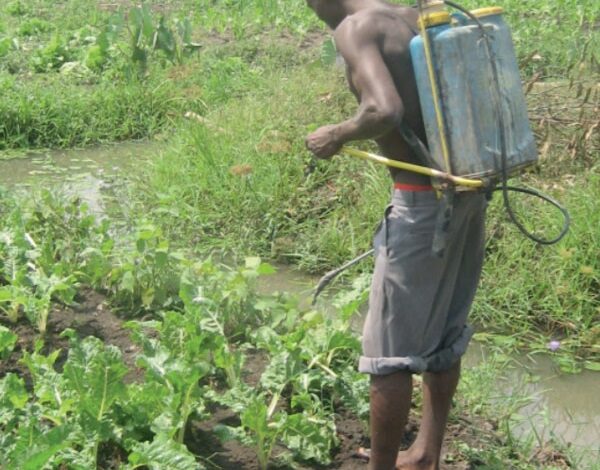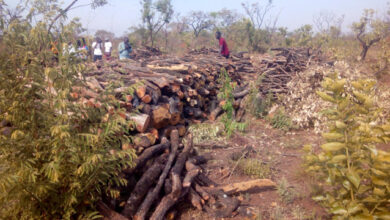Hidden costs of using agrochemicals for small scale farmers
The government need also to recognize agro-ecology as one of the farming systems which brings healthy and quality food for consumption and market.

Op-Ed: Editor,according to the Uganda Bureau of Statistics report 2023, it is noted that Uganda is considered to be the best among the African countries when it comes to agriculture and Uganda’s fertile agricultural land has the potential to feed 200 million peopleaccording to the UN’s Food and Agriculture Organization.
Approximately 68% of Uganda’s working population survive on agricultural activities for food, income and other opportunities while approximately 24% of Uganda’s Growth Development Product (GDP) and 35% of export revenue came from agriculture in FY 2022–2023 which clearly show that the sector of agriculture must remain a big priority of Ugandans.
Although agriculture is the mainstay of Uganda’s economy employing over 70% of the total population, it is noted that the commercialization of the sector is impeded by alot of challenges faced by small scale farmers such as sub-standard agrochemical inputs, limited use of fertilizers among others.
Note that most of these farmers are vulnerable who cannot afford the standard agrochemicals and in that case, they end up using low quality inputs of use of fertilizers to improve their food production which has continued to hinder the agricultural sector from realizing its potential in Uganda.
It is noted that in order to contend with pests and diseases including rats, wild animals and crop-eating birds, as a result, small scale farmers typically use these substandard chemicals such as ARVs, Mancozeb among others as one of their primary weapons in the fight to boost their yields, save livestock and control weeds and pests which may lead to chronically health effects include links to cancer, neurological disorders and reproductive problems.
Various reports have indicated that for farmers to fatten their animals or prolong the shelf life of their farm to produce, they use chemical substances such as anti-retroviral drugs to feed pigs and formalin to preserve meat.
Moreover, some of the pesticides such as Mancozeb that are used by tomato farmers are retained in the produce that farmers send to the market which puts tomato consumers at risk of abnormal thyroid, cancer and other diseases.
The increasing use of agrochemicals in Uganda presents further the grave challenges of soil degradation which affects agricultural production since the small scale farmers are unable to produce productively.
Note that, the cost of fertilizers influence fertilizerusers due to the fact that when the cost of fertilizers is high, the demand among farmers tend to be very low and when the costs are low, most farmers tend to use them because they become affordable to most of them even those in low income status however, the overuse of these agrochemicals also pose significant risks to farmers and the environment as well despite their benefit for food yield.
According to the studies, it is noted that 11,000 people die from the toxic effects of pesticides annually and chemical residues degrades ecosystem, diminishing soil health and farmers’ resilience to climate change.
More so, asclimate change crisis worsens and commercial interests continue to take hold, Uganda stands to lose its indigenous seeds and plants which is bad for both the farmers and consumers of farm produce and this is due to farmers’ ignorance about the agrochemicaluse.
Available information indicates that only 23% of farmers in Uganda have the recommended training in pesticides use including pesticide application techniques, storage and safety measures. We should note that fake agrochemicals affect soil biodiversity which results in poor productivity and the exploitation of farmers
The government need to address these challenges affecting agricultural sector from realizing its potential such as use of substandard agrochemical inputs, high interest rates that undermine access to credit for small scale farmers, widespread use of harmful herbicides as well as pesticides among others so as to make agriculture benefit all Ugandans by increasing agricultural productivity.
Small scale farmers also need to be sensitized on the dangers of using fake agrochemicals such anti-retroviral drugs and other chemicals and empower citizens and Uganda police to arrest farmers and traders who use those harmful chemicals to preserve farm produce.
The government need also to recognize agro-ecology as one of the farming systems which brings healthy and quality food for consumption and market.
The author is Olive Atuhaire, Research Associate.
Disclaimer: As UG Reports Media LTD, we welcome any opinion from anyone if it’s constructive for the development of Uganda. All the expressions and opinions in this write-up are not those of UG Reports Media Ltd. but of the author of the article.
Would you like to share your opinion with us? Please send it to this email: theugreports@gmail.com.






